There’s often confusion among homeowners when selecting an electric vehicle (EV) charger circuit breaker, especially regarding the correct breaker size and whether to use a GFCI breaker for EV charger installation.
Choosing the right dedicated circuit breaker for your EV charger is crucial for a safe and reliable installation. Whether for residential power distribution or EV charging, selecting a breaker with the correct specifications ensures system stability, prevents electrical hazards, and supports efficient, uninterrupted operation.
In this guide, we’ll explore key factors and provide practical insights to help you make an informed decision.
How to Select the Ideal EV Charger Circuit Breaker
Matching the circuit breaker’s nominal current to the electrical device’s load is critical for safe and reliable operation. According to the National Electrical Code (NEC) 210.19(A)(1), the breaker must be sized to handle at least 125% of the continuous load (known as the 125% rule) to prevent nuisance tripping or overheating.
Always assess your electrical panel’s capacity and the condition of existing wiring to ensure compatibility with your chosen dedicated breaker and EV charger. If your current setup cannot safely support the increased EV charging load, upgrading your panel or wiring is essential. Proper upgrades prevent overloads, enhance overall safety, and ensure efficient, dependable charging performance for your EV.
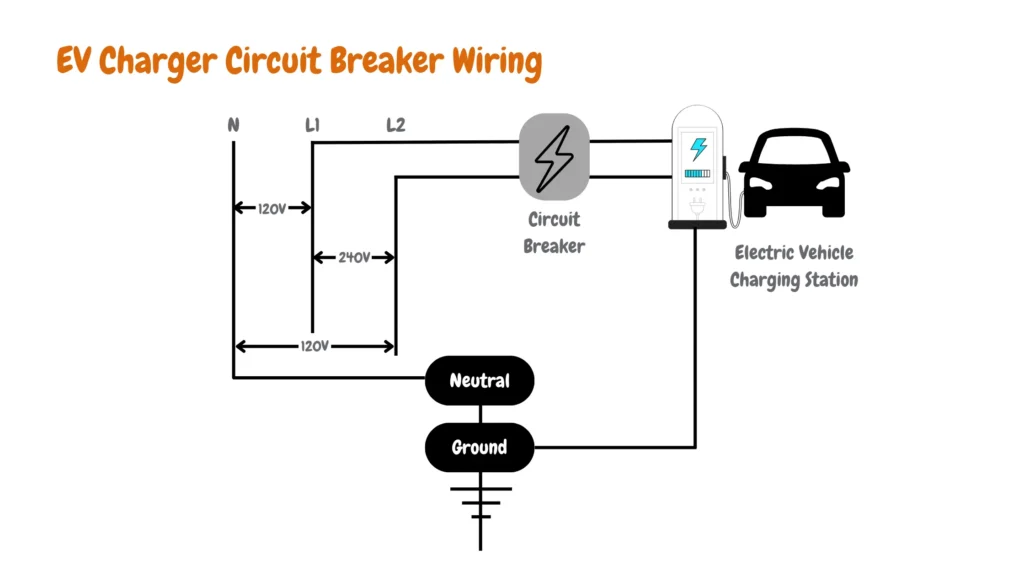
Levels of EV Chargers and Their Circuit Breakers
Level 1 EV chargers typically draw between 12 and 16 amps and require a 15- or 20-amp breaker, respectively, to meet safety standards. Level 2 chargers have a broader amperage range (from 16 up to 80 amps), necessitating breakers sized between 30 amps for lower-power models and up to 100 amps for high-capacity units.
Per NEC 2020 Article 210.20(A) and NEC 210.19(A)(1), circuit breakers supplying continuous loads must be rated at least 125% of the load’s maximum continuous current to ensure safe and reliable operation without nuisance tripping.
Level 1 Home EV Chargers and Their Circuit Breakers
If you have a level 1 charger with a power rating between 1.3kW and 3.8kW connected to a 110V to 240V AC power outlet, you will need a 15A or 20A single pole circuit breaker. The size of the circuit breaker you choose will be determined by the required speed of charging, which is determined by the range of your daily commute.
Level 1 chargers on a 15A or 20A circuit breaker will take up to 12 to 20 hours, at a rate of 8kms per hour. In the table below, we tested various circuit breakers (links provided) to measure their maximum power outputs, power delivery, miles of range added per hour, miles of range added charging overnight, and the kWh added overnight using a 15A and 20A circuit breaker.
| Circuit Breaker (amps) | EV Charger Circuit Breaker Used | Maximum Output (amps) | Power Rating of a Charger (kW) | Miles of range added (per hour) | Miles of range added (Overnight) | Approx. kWh Added (overnight) |
|---|---|---|---|---|---|---|
| 20 | Square D 20amps Homeline Circuit Breaker | 16 | 3.8 | 7-15 | 70-150 | 35 |
| 15 | Square D – 15 Amp GFCI Circuit Breaker | 12 | 2.8 | 5-11 | 50-110 | 25 |
How to Wire a Level 1 Home EV Charger Single-Pole Circuit Breaker (USA – NEC)
The following diagram shows the wiring connection of a single-pole circuit breaker for a single-phase 120V AC (1P+N)
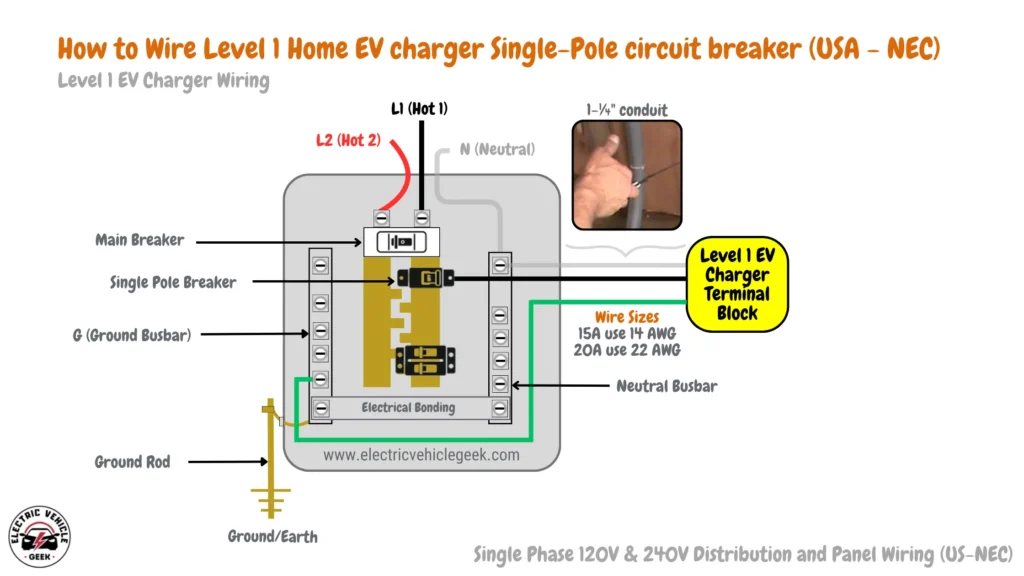
As shown in the wiring diagram above, a single hot wire (14AWG for 15Amp circuit breaker, or 12AWG for 20Amps circuit breaker) is directly connected to the circuit breaker, and the output is connected to the level 1 EV charger terminal block.
Level 2 Home EV Chargers and Their Circuit Breakers
Level 2 charging stations can have a power output of 3.3–19.2 kilowatts (kW), and you will need a double pole circuit breaker between the ratings of 30A and 100A. Choosing a circuit breaker for your level 2 charger will be determined by the power ratings of your EV charger and the range of your daily commute.
In the table below, we have summarized the maximum power outputs, power delivery, miles of range added per hour, miles of range added charging overnight, and the kWh added overnight using a 30A to 100A circuit breaker.
| Circuit Breaker (amps) | EV Charger Circuit Breaker Used | Maximum Output (amps) | Power Rating of a Charger (kW) | Miles of range added (per hour) | Miles of range added (Overnight) | Approx. kWh Added (overnight) |
|---|---|---|---|---|---|---|
| 100 | Square D 100-Amp Circuit Breaker | 80 | 19.2 | 35-75 | 350-750 | 175 |
| 60 | Siemens 60 Amp GFCI Circuit Breaker | 48 | 11.5 | 20-45 | 200-450 | 105 |
| 50 | Square D 50-Amp GFCI Breaker | 40 | 9.6 | 18-38 | 175-375 | 85 |
| 40 | Square D 30-amp Homeline Circuit Breaker | 32 | 7.6 | 15-30 | 150-300 | 70 |
| 30 | Square D 30amps Homeline Circuit Breaker | 24 | 5.7 | 11-22 | 100-220 | 50 |
The higher the power output, the faster the charging time. Most level 2 chargers have a power output of 7–11 kW, which provides about 25–40 miles of range per hour of charging.
100%-rated CBs can handle continuous loads at full capacity, provided the assembly is listed and the conductors are correctly connected. In North America, most circuit breakers are 80% rated, meaning they can only be used continuously at 80% of their thermal current rating.
The NEC rules dictate that the overcurrent device (breaker or fuse) should be sized at least 100% of the noncontinuous load plus 125% of the continuous load.
How to Wire a Level 2 Home EV Charger Double-Pole Circuit Breaker (USA – NEC)
The following diagram shows a Level 2 EV charger electrical panel wiring protected through a double pole circuit breaker, the circuit breaker is connected to a double pole circuit breaker slot, and two hot wires (L1+L2) output from the circuit breaker are connected to the Level 2 EV charger terminal block.
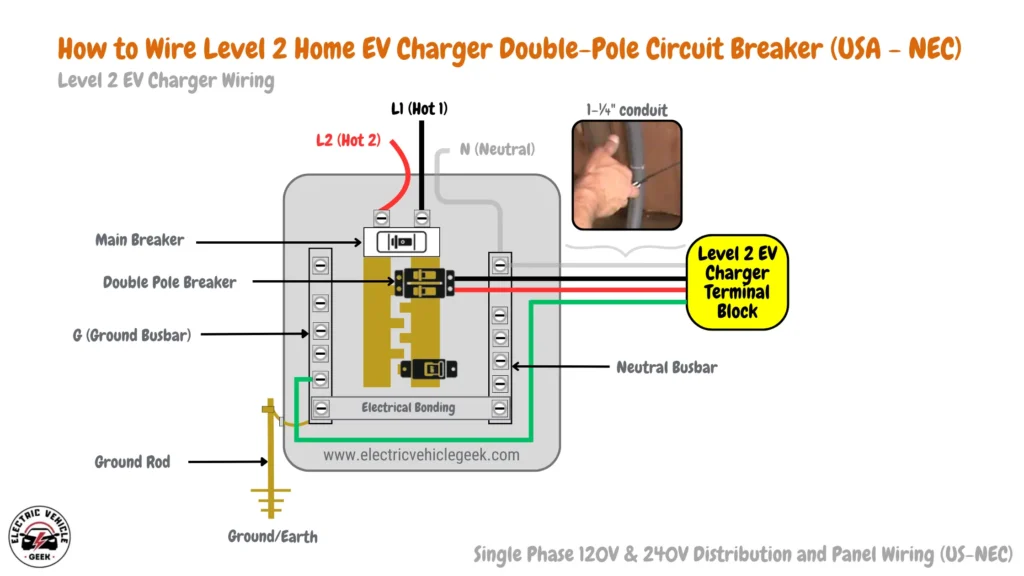
Depending on the Circuit breaker amps and the power rating of the level 2 EV charger, the wires used to connect the circuit breaker to the charger should be the following sizes:
| Circuit Breaker Amps | Power Rating of EV Charger (kW) | Wire Size |
|---|---|---|
| 30 | 5.7 | 10 AWG |
| 40 | 7.6 | 8 AWG |
| 50 | 9.6 | 6 AWG |
| 60 | 11.5 | 4 AWG |
Understanding Circuit Breaker Ratings
Circuit breakers come with specific ratings, and understanding these is crucial. The “circuit breaker (amps),” “maximum output(amps),” and “power delivery (kW)” are essential parameters.
- Circuit breaker (amps): Ranges from 15 to 100 amps.
- Maximum output (amps): Varies between 12 and 80 amps.
- Power delivery (kW): Ranges from 2.8 to 19.2 kW.
Power Delivery and Efficiency
We recommend matching the power ratings of your EV charger and the correct circuit breaker amperage, a higher power rating of the EV charger, and a higher amperage circuit breaker to determine your EV charging speeds. Let’s visualize this with a bar chart:
We matched the circuit breaker amps with the corresponding power ratings of the EV charger as shown in the table below:
| Circuit Breaker (amps) | 100 | 60 | 50 | 40 | 30 | 20 | 15 |
| Power Rating of a Charger (kW) | 19.2 | 11.5 | 9.6 | 7.6 | 5.7 | 3.8 | 2.8 |
Consideration of Future Expansion
Future-proofing your electrical system involves considering potential expansions. Choosing a circuit breaker with ample capacity, such as the 100-amp option, ensures your system can accommodate increased electrical needs down the road.
Do EV Chargers Need GFCI Protection?
If your electrical socket installation permit predates your state’s adoption of NEC 2020, you likely don’t need to add GFCI protection. However, if it aligns with NEC 2020, check your state amendments for GFCI requirements.
GFCI is essential because the car utilizes the ground conductor for measurements and communication. Your EV charger’s charge connector includes a “smart GFCI” for protection against electric shocks from your car. This smart GFCI resets automatically to handle temporary faults during charging. Avoid using unauthorized adapters, as the charger communicates with the car about safe power levels.
16 Amp vs 32 Amp EV Charger
The key distinction between a 16-amp and a 32-amp EV charger lies in their charging speeds. A 16-amp charger takes approximately 7 hours to charge an electric car, while a 32-amp charger achieves the same in around 3.5 hours.
The 16-amp charger necessitates a minimum 20-amp circuit breaker, supporting a 3.6kW power rating, whereas the 32-amp charger, with a 7.4kW power rating, requires installation on a 40-amp circuit breaker for optimal performance.
32 Amp vs 40 Amp EV Charger
Charging time is the primary distinction between a 32-amp and a 40-amp EV charger. A 32-amp charger typically requires 8–13 hours for a full EV battery charge, whereas a 40-amp charger accomplishes the same quicker than 6.5–10.5 hours.
For optimal installation, the 32-amp charger is recommended on a 40-amp circuit breaker, while the 40-amp Level 2 charger necessitates a circuit breaker rated at least 50 amps.
40 Amp vs 48 Amp EV Charger
When comparing a 40-amp and a 48-amp EV charger, the key factors are charging power and speed. The 40-amp charger, with a 9.6 kW power rating, adds 29-38 miles of range in approximately 6.5 hours, while the 48-amp charger, boasting an 11.5 kW power rating, achieves 34-46 miles in around 5.5 hours. The 40-amp charger requires a 240-volt circuit, and the 48-amp charger, with a slightly faster charging rate, completes a full charge in about 9 hours.
Conclusion
In conclusion, selecting the right circuit breaker involves carefully evaluating its ratings and your EV charger ratings. Understanding the statistics on matching your EV charger ratings and its recommended circuit breaker amperage in this guide empowers you to make informed decisions and optimize your electrical system’s performance, efficiency, and safety.
Related Posts
- Complete Guide to GFCI Breaker for EV Charger
- Smart Circuit Breaker for EV Charger Installation
- Arc Fault EV Charger Circuit Breakers
- Siemens EV Charger Circuit Breaker
- Molded Case Circuit Breakers in EV Charging

James Ndungu is a certified EV charger installer with over five years of experience in EVSE selection, permitting, and installation. He holds advanced credentials, including certification from the Electric Vehicle Infrastructure Training Program (EVITP) and specialized training in EV charging equipment and installation, as well as diplomas in EV Technology and Engineering Fundamentals of EVs. Since 2021, James has tested dozens of EV chargers and accessories, sharing expert insights into the latest EV charging technologies.
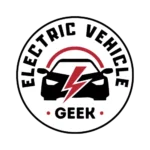


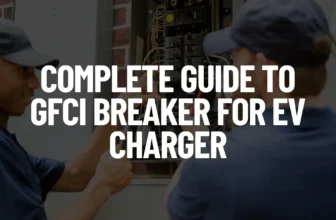
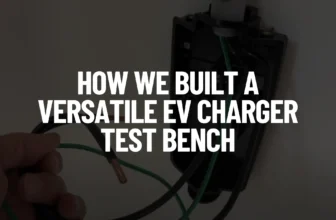
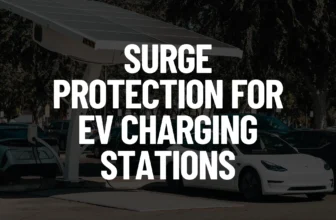
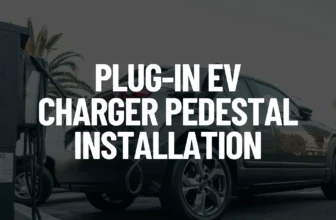
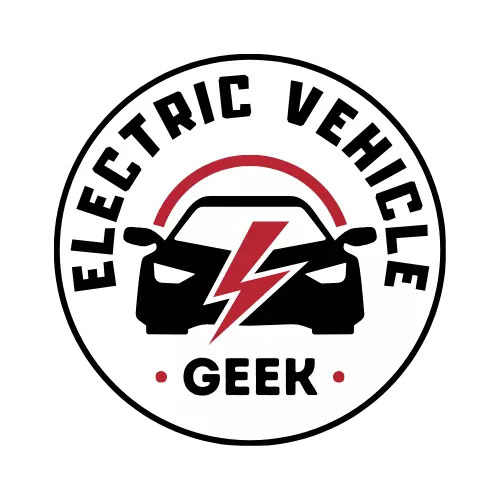
Great article. I have the BMW flexible fast charger plugged in to an EV 15-40 plug. This is installed with a homeline gfci breaker but it trips the breaker even set to 32 amp charging. From what I have been reading, the flex charger has its own gfci protection and causes nuisance trips. How can this be avoided if it can be?
This is a very common plug-in EV charging issue, a “double GFCI” conflict that many EV owners encounter. The BMW Flexible Fast Charger has built-in ground-fault protection (CCID). When it performs its normal self-tests, it allows a very small amount of leakage current to ground. A Homeline GFCI breaker is sensitive enough to see this as a fault and trip, even when charging is set to 32 amps. This is usually a nuisance trip caused by two protection systems reacting to each other, not an actual safety problem.
The cleanest way to avoid this is to hardwire the charger. Once the plug is removed and the unit is hardwired, the code allows the GFCI breaker to be replaced with a standard breaker because the charger already provides ground-fault protection. This eliminates the double-GFCI conflict and is the most reliable long-term fix.
If you stay with a plug-in setup, make sure you’re using a high-quality industrial receptacle like Hubbell or Bryant. While this won’t stop the GFCI from tripping, it does reduce resistance, heat, and other reliability issues. What you should not do is swap the GFCI breaker for a standard breaker while keeping the outlet, as that violates code and removes required protection at the receptacle.